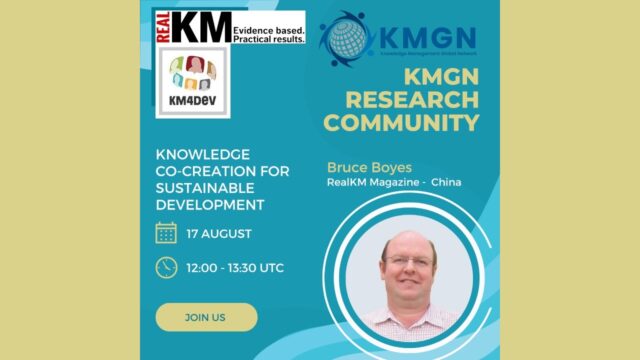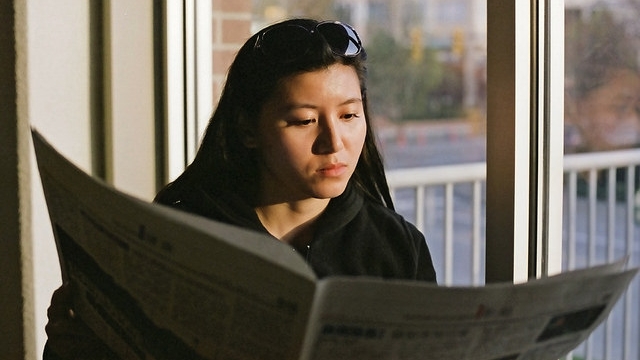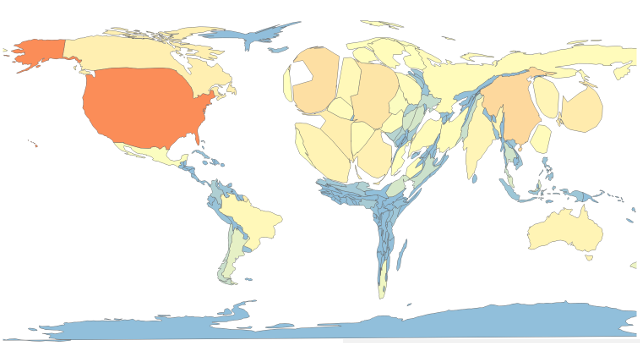
Open access to scholarly knowledge in the digital era: Foreword and series overview
This article is the foreword of a series of articles summarising the book Reassembling Scholarly Communications: Histories, Infrastructures, and Global Politics of Open Access.
Knowledge sharing is promoted as a fundamental aspect of knowledge management (KM), yet, hypocritically, many KM research papers are locked away behind journal paywalls where the practitioners who can potentially benefit from their findings cannot access them, and the claims being presented in the research cannot be critically evaluated.
In response, RealKM Magazine actively promotes and supports the concepts of open knowledge and open KM. We do this through:
- always making our own content freely accessible
- only using open access research and other openly accessible information as sources or references for articles
- actively supporting and promoting the work of researchers who have chosen to publish their work open access, and in particularly Creative Commons open access
- strongly encouraging the use of open access journals by KM researchers.
But open access isn’t that simple
However, the issue of providing open access to academic knowledge isn’t as simple as the black and white perspective of either making research open access or not.
A newly published volume1 from MIT Press explores the far more complicated reality. In the volume, editors Martin Paul Eve and Jonathan Grey put forward perspectives and case studies that explore the histories of scholarly communications and:
- question the dominant narrative of the emergence of open access
- examine how contemporary practices might suggest other alternative arrangements and trajectories, embedding different values and conceptions of the role of scholarship in the contemporary world
- explore the futures that might emerge from such differential thought.
This RealKM Magazine series will summarise the main points from the introduction, each of the 25 chapters, and the conclusion of the book. This has been made possible by the publication of the volume as Creative Commons open access.
Overview of the series
This series is divided into six sections: colonial influences, epistemologies, publics and politics, archives and preservation, infrastructures and platforms, and global communities.
Introduction
Section 1: Colonial influences
This section reflects upon issues of global inequality and paints a very different picture to the scene with which those from the Global North may be familiar:
1.1 – The alienation of African knowledge – open access as a pharmakon
1.2 – Scholarly communications and social justice
1.3 – A locally-driven “library as a publisher” service for Africa
1.4 – Can open scholarly practices redress injustices in knowledge-making?
Section 2: Knowledge cultures
The second section focuses on knowledge cultures; the ways in which we think about knowledge itself and how this shapes our understandings of digital and open transformations of research publishing:
2.1 – Insights for today from the historical origins of modern copyright
2.2 – How does a format make a public?
2.3 – The evolving role of readers in peer review
2.4 – Intersections between artistic making and scientific knowing.
Section 3: Publics and politics
The third section turns to different audiences and publics, and the politics of the open dissemination of research work:
3.1 – The Royal Society and the noncommercial circulation of knowledge
3.2 – The political histories of UK public libraries and access to knowledge
3.3 – Libraries and their publics in the United States
3.4 – Open access, “publicity,” and democratic knowledge.
Section 4: Archives and preservation
The fourth section turns its focus to archives and preservation:
4.1 – Libraries, museums, and archives as speculative knowledge infrastructure
4.2 – Preserving the past for the future – whose past? Everyone’s future
4.3 – Digital humanities and print-centered communications
4.4 – The dangers of open access archives
Section 5: Infrastructures and platforms
The fifth section looks at infrastructures and platforms:
5.1 – Infrastructural experiments and the politics of open access
5.2 – The platformisation of open
5.3 – Reading scholarship digitally
5.4 – Toward linked open data for Latin America
5.5 – The pasts, presents, and futures of SciELO.
Section 6: Global Communities
The last section is dedicated to ideas of community and global community in scholarly communication paradigms:
6.1 – The ethics of care in open-access publishing
6.2 – A developing region perspective on global open access
6.3 – The future of learned societies in a world of open access
6.4 – Toward open, sustainable research communities.
Conclusion
Conclusion
Next part: Introduction.
Article source: Eve, M. P., & Gray, J. (Eds.) (2020). Reassembling scholarly communications: Histories, infrastructures, and global politics of Open Access. MIT Press. CC BY 4.0.
Reference:
- Eve, M. P., & Gray, J. (Eds.) (2020). Reassembling scholarly communications: Histories, infrastructures, and global politics of Open Access. MIT Press. ↩
Also published on Medium.





